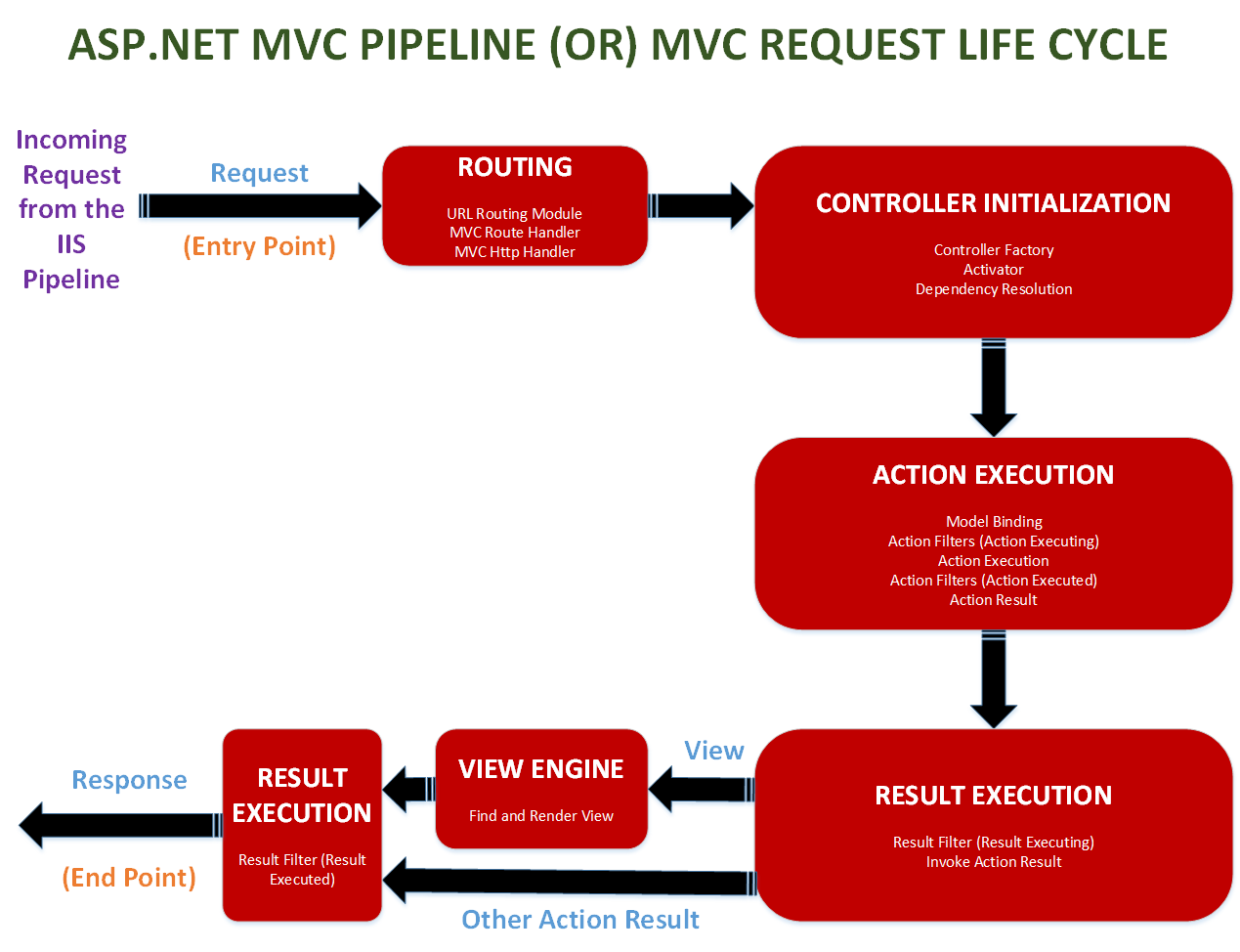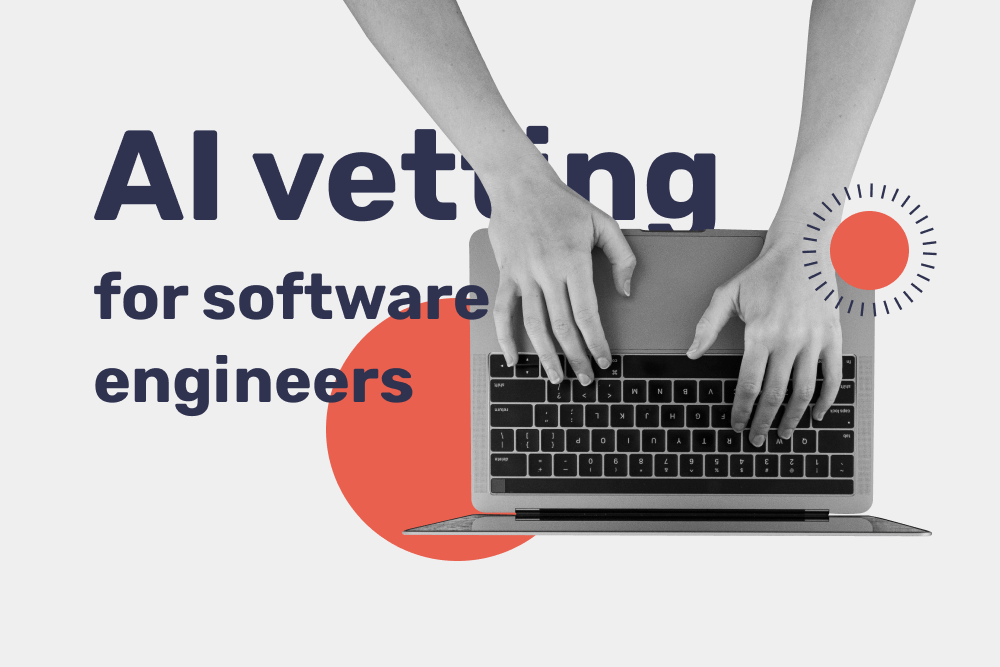So you have an idea. Based on your research (or someone has told you) you feel that .Net could be a good technology for your app. Now you need to hire an engineer, a good one. As a non-technical founder or an engineering manager with little experience in .Net, you may need some help with the questions to ask during the interview.
Here is a comprehensive list of general, background, and in-depth ASP.NET interview questions and answers to help reveal the required expertise. Moreover, this post will come in handy for ASP.NET developers willing to nail the interview confidently.
So, without further ado, let’s jump right into ASP.NET concepts!
What is ASP.NET?
Before we jump right into it, let’s make sure we understand what ASP.Net is. ASP is an open-source tool that comes from the umbrella of the .NET Frameworks. The title stands for Active Server Pages, which literally declares ‘I am active’ and means developers can make direct manipulations with code.
It is a convenient tool in the tech world since it covers both the front and back end development. Its code reuse and Object-Oriented Programming (OOP) features help craft apps faster and cost-effectively. Relying chiefly on actions and data, this model involves less logic and, accordingly, ‘less headache.’
What Makes A Great ASP.NET Developer?
To the greatest extent, there are two points to keep in mind. The first criterion in search of great performers in this realm is a general understanding of computer science and OOP. To check how well your candidates understand fundamentals, software developer interview questions will come in handy. Another benchmark is everything connected with ASP. Specialists should have expertise in Model View Controller, Web API, database applications (SQL).
30+ ASP NET Interview Questions and Answers
It is impossible to define one scenario for a perfect ASP.NET interview. Each product developed using this technology is unique, hence has its own criteria for success and technical requirements. We have prepared both standard and challenging questions that cover all aspects of ASP.NET. However, if you want to find a total match expert for your product, don’t forget about your product.
Q1: Website vs Web App: What’s the Difference?
Yes, this one is very basic, but important thing for web developer interview questions. The whole difference lies in one feature: websites are static, and apps are dynamic. What does it mean? Websites provide content we see, but apps allow us to interact with this content. In most cases, users do not have or have limited ability to interact with the site.
Q2: What are the main benefits of .Net over other languages?
If you want to develop a web application, you can find a wide range of languages for this task. For example, you can choose JavaScript, Ruby, PHP, Python, and more. But how .NET differs from other languages, and why can it be the best choice to build web apps?
The first thing to clarify is that we cannot say that .NET is a language itself. It is a framework that provides programming guidelines that can be used to develop a wide range of applications. Here are its advantages compared to other approaches to web development:
- Strong methods of authentication/authorization. You can be sure about the security of apps built on this framework because of the per-application configuration and built-in Windows authentication.
- Automatic resource management. The framework allows automating the management of application resources such as file memory or network and database connections.
- Rich toolbox in the form of Visual Studio. Some excellent features include automatic deployment, WYSIWYG editing, and drag-and-drop server controls.
- Cross-platform support. As far as the framework features Visual Studio IDE, it is possible to run it on all platforms like Windows, macOS, and Linux.
- Less time coding. The framework technology reduces coding time, so it will be beneficial for building large applications. Executable portions of a web application are compiled, so they execute more quickly than interpreted scripts.
- Better out of the box. This framework utilizes things like native optimization, early binding, caching services, and just-in-time compilation.
In addition to the advantages above, .NET is a very mature framework. It has been supported for nearly two decades and has evolved tremendously to become pne of the leading stacks.
Q3: What types of apps can we develop using ASP.NET? Name popular web sites written with it
ASP.Net stack covers various solutions. The list can range from simple web sites with HTML pages to advanced enterprise applications that run on local and remote networks. In addition, it enables us to build class libraries, mobile applications, console applications, gaming, and even IoT solutions. Some of the popular websites powered by ASP.NET are Stack Overflow, Microsoft, Outlook, GoDaddy, Ancestry.com.
Q4: Name SOLID Principles
This is another important question to include in an interview. SOLID is not just a concept but a certain mindset every developer should adhere to. It is an abbreviation of titles of five algorithms for building clean code and more flexible apps. These rules are as follows:
- Single-responsibility: Each object should perform only one task and have only one method for its implementation.
- Open-closed: All objects should be open for expansion but closed for changes. If the class has many branches (and this number will likely increase), you need to design it so that new branches or steps do not lead to its modification.
- Liskov substitution: If you replace a base class object with an object of its derived object, the program must continue to work correctly.
- Interface segregation: More specialized interfaces are better than one common. One common interface poses a risk for a derived class to be unable to inherit any method.
- Dependency Inversion: Both high-level and low-level modules should not depend on each other but on abstractions.
Q5: What types of data are used in ASP Net?
We can use several types: int, string, double, char, float, and bool.
Q6: Name all the reference data types
Another good thing to add in interview questions. There are several types: object, string, class, interface, and delegate.
Q7: ASP and ASP NET: Are they the same?
Just like PHP or Perl, both are classic ways to create web pages. Both are server-side languages and were introduced by Microsoft. ASP uses VBScript, and although it is an earlier version, developers still use it. ASP NET, in turn, is an open-source environment for compiled languages that supports a wider circle of languages like C# and VB NET.
Q8: What is garbage collector (GC)?
Garbage collector in ASP.NET is a manager to allocate and release the memory for an application. It automatically performs all the necessary procedures with the memory without writing code. In addition, GC helps to avoid common problems such as memory loss.
Q9: What is the difference between Delegate and Action?
When developers define a delegate, they basically define the signature of a method (return type and arguments). An Action is a delegate that has already been defined (void return and no arguments).
Q10: What is NameSpace in ASP.Net?
NameSpace is a container for identifiers (the names of types, functions, variables, etc). It is used to organize the scope of classes, and keep one set of names (like class names) different from other sets of names.
Q11: What is the purpose of ConfigureServices?
The ConfigureServices is a place where you can register Dependency Injection and Authentication services. After registering a dependent class, it can be used anywhere in the application.
Q12: Where can we store value data types?
We can store these data types only in the stack.
Q13: Where can we store reference data types?
The reference data can be stored in heap memory space.
Q14: What is MVC?
If you look for ASP net MVC interview questions and answers, give a shot at the basic question about this framework. So, it works under the scenario of separating an app into three types of elements: models, views, and controllers. It helps to manage workflow faster and perform particular tasks separately.
Image credit: Medium
Q15: How does ASP.NET Web Forms differ from MVC?
Both are focused on the same goal but reach it with different means. MVC uses a front controller, facilitates working with IIS (Internet Information Services – the most popular webserver to host ASP.NET web applications), and is considered a more flexible tool because of customization. WebForm, in turn, is slightly older and not open-source. Its main purpose is to make sites in a style of apps. All this happens in a few clicks through dragging a button on the form, hanging events, and banging the data.
Q16: When to favor WebForms over MVC?
Questions like ‘when it is better to use something’ is always a great idea for an interview. For instance, WebForms will come in handy for GUI-centric apps for quick prototyping.
Q17: What are the types of Action filters?
There are three types of action filters used in ASP.NET MVC framework:
- OutputCache is used to cache the output of a controller action for a certain time.
- HandleError is used to manage the errors raised when a controller action is performed.
- Authorize filter allows restricting access to a particular user or role.
Q18: Describe the ASP.NET MVC request pipeline
One more question for a technical interview to determine if a candidate has the skills to do the job well. ASP.NET MVC request pipeline consists of four steps: Routing, Controller Initialization, Action Execution, and Result Execution. Schematically, this workflow may look as follows:

Image credit: Medium
In addition, candidates must describe each step of the pipeline. For example, routing is required to match incoming requests with the help of the URL routing module. It also features MVC Route Handler and MVC HTTP Handler. The first starts running the controller, while the other converts the route data into a concrete controller.
Once the routing is completed, the next step is the initialization of the controller. It is needed to create a controller instance and provide a location for performing dependency injection. The next step is the execution of the corresponding action. The final step is the execution of results, where MVC separates the execution of the action from the results’ execution.
Q19: What is Entity Framework?
It is an Object Relational Mapper (ORM) tool that facilitates mapping between several elements. It uses domain-specific objects and allows developers to avoid writing code for interaction with the database. It uses LinQ queries instead of SQL queries.
Q20: What does abstract class mean?
Sometimes the easiest questions like this are the trickiest ones. So, an abstract is any class that has at least one virtual method.
Q21: Contrast abstraction and interface
An interface is a set of requirements for various objects, and for each particular case, the implementation may vary. Abstraction is a method to describe the general behavior of a group of similar descendant objects.
Q22: How do multiple inheritances happen in ASP?
In OOP, one class can inherit several other ones. For ASP, an approach like this doesn’t work, and we can perform inheritance only from one class. Here instead, to implement several logic tasks, we use interface.
Q23: What is the purpose of LINQ in ASP NET?
It is a language integrated query component that extends ASP NET with needed querying capabilities for data processing. It allows manipulating data that come from a database.
Q24: Contrast Overriding and Overloading
Both are types of polymorphism. When a class inherits an abstract one, all the virtual methods should go through overriding. Overloading is a feature to use a single identifier to define multiple methods.
Q25: Contrast boxing and unboxing
Both are operations with data. The boxing operation is characterized by the allocation of memory in the managed heap for the value type object and the assignment of a pointer to this memory area to a variable on the stack. In contrast, unboxing allocates memory on the execution stack for an object obtained from the managed heap using a pointer.
Q26: Compare Web.config and Machine.config file
The first one is the master configuration file with default settings. The second file contains the rest of the configurations and separates them from code, so developers can add changes without interfering.
Q27: What is Dependency injection?
It is when one object supplies the dependencies of another. It allows a service to be injected in a way that is completely independent of users’ actions.
Q28: Compare GET and POST methods
Both are common HTTP methods. As the names suggest, the get approach obtains data, and the post method sends it. The first one has faster performance but low security (great for creating bookmarks). The other one is slower yet secure and is suitable for cases when we need to send data but hide it from the user.
Q29: What is REST?
This is actually a pretty fundamental question that everyone should know. REST is a way to craft web apps with the opportunity to manage everything that was identified through URI (Uniform Resource Identifier). Its prime goal is to facilitate interactions between several systems.
Q30: Name all the types of session states
There are five states: InProc (done by default), StateServer, SQLServer, Custom, and Off mode.
Q31: What is Web Services in ASP NET?
It is a range of methods to create apps. It has no user interface but allows developers to manipulate code, interact with different objects through XML and common internet protocols.
Q32: What is QueryString?
It is an input that transfers a value from point A to point B. It contains several keywords and two parameters: variable and index.
Q33: What is Expression Tree in ASP.NET?
An expression tree represents a code in a tree-like data structure, where each node is an expression. This mechanism is needed to translate executable code into data.
Q34: Contrast file and key-based dependencies
Last but not the least question for an interview. Here is the thing: in file dependency, everything relies on one document from a server. In key dependency, there is a chain of dependencies between each element from the cache.
Wrapping Up
Great products are built on great ideas with proper implementation. If you plan to implement yours using ASP NET, choose highly-qualified specialists. We hope after this post, you will have a clear idea of how to find those.
If you have limited time or experience difficulties finding the right candidate, you can hire .NET developers right now. We at Bridge can take into account all the features of your product and so handpick the exact expertise you need to implement your ideas.
Have anything to add, or ask? Leave a response below, or contact us anytime.




